Related Research Articles
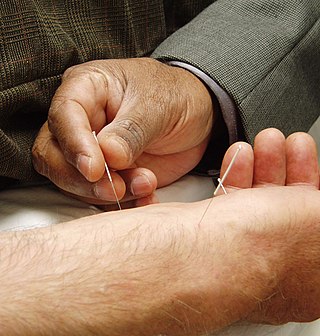
Acupuncture is a form of alternative medicine and a component of traditional Chinese medicine (TCM) in which thin needles are inserted into the body. Acupuncture is a pseudoscience; the theories and practices of TCM are not based on scientific knowledge, and it has been characterized as quackery.
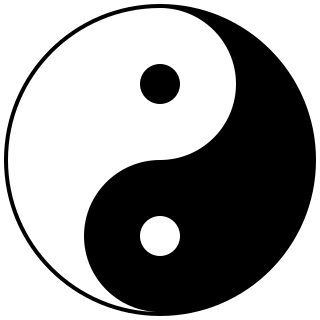
Traditional Chinese medicine (TCM) is an alternative medical practice drawn from traditional medicine in China. It has been described as "fraught with pseudoscience", with the majority of its treatments having no logical mechanism of action.

Wuxing, usually translated as Five Phases or Five Agents, is a fivefold conceptual scheme used in many traditional Chinese fields of study to explain a wide array of phenomena, including cosmic cycles, the interactions between internal organs, the succession of political regimes, and the properties of herbal medicines.
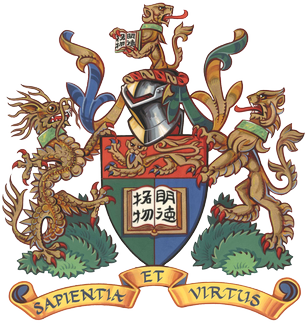
The University of Hong Kong is a public research university in Pok Fu Lam, Hong Kong. Founded in 1887 as the Hong Kong College of Medicine for Chinese, it is the oldest tertiary institution in Hong Kong. Today, HKU has ten academic faculties and English is the main medium of instruction and assessment.
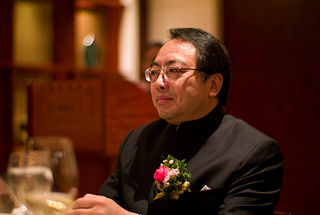
Lap-Chee Tsui is a Chinese-born Canadian geneticist and served as the 14th Vice-Chancellor and President of the University of Hong Kong.
A medical degree is a professional degree admitted to those who have passed coursework in the fields of medicine and/or surgery from an accredited medical school. Obtaining a degree in medicine allows for the recipient to continue on into specialty training with the end goal of securing a license to practice within their respective jurisdiction. Medical graduates may also pursue non-clinical careers including those in basic research and positions within the healthcare industry. A worldwide study conducted in 2011 indicated on average: 64 university exams, 130 series exams, and 174 assignments are completed over the course of 5.5 years. As a baseline, students need greater than an 85% in prerequisite courses to enrol for the aptitude test in these degree programs.

Traditional Korean medicine refers to the forms of traditional medicine practiced in Korea.

Eu Yan Sang is a company that specialises in traditional Chinese medicine (TCM). It currently runs 170 retail outlets in Singapore, Malaysia, Hong Kong and Macau, plus four factories in Hong Kong and Malaysia. The group also operates 28 TCM clinics in Singapore, Malaysia and Hong Kong.
Hong Kong University Press is the university press of the University of Hong Kong. It was established in 1956 and publishes more than 50 titles per year in both Chinese and English. Most works in English are on cultural studies, film and media studies, Chinese history and culture.

Gabriel Matthew Leung is a Hong Kong physician and epidemiologist, currently serving as the executive director of the Hong Kong Jockey Club. From 2013 to 2022, he was the longest-serving Dean of Medicine at the University of Hong Kong, where he was also the inaugural Helen and Francis Zimmern Professor in Population Health. Formerly, he was Hong Kong's first Under Secretary for Food and Health and fifth Director of the Office of the Chief Executive at the Government of Hong Kong.

The Li Ka Shing Faculty of Medicine or LKS Faculty of Medicine (HKUMed), formerly known as the Faculty of Medicine of the University of Hong Kong, is a medical school which comprises several schools and departments that provide an array of tertiary programmes in medicine, nursing, pharmacy and chinese medicine. English is the medium of instruction in all of the classes while Chinese is also retained for the teaching of Chinese medicine. It is located several kilometres away from the main campus of the university and is near the Queen Mary Hospital which is its main teaching facility and research base. Founded in 1887, it is also one of the oldest western medical schools in the Far East.
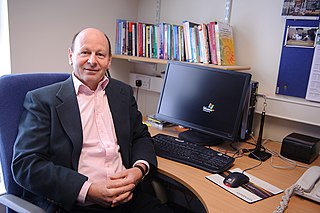
Hugh MacPherson was a professor of acupuncture research at the University of York, founder and trustee of the Northern College of Acupuncture, founder and co-ordinator of the international STRICTA group, clinic director of York Clinic, fellow of The College of Medicine, and a practising member of the British Acupuncture Council.

Sir Peter William Mathieson is an English nephrologist and current principal and vice-chancellor of the University of Edinburgh. Previously, he served as the vice-chancellor and president of the University of Hong Kong (HKU). He was the dean of the Faculty of Medicine and Dentistry of the University of Bristol before he assumed office at the HKU in April 2014, and was previously director of studies at Christ's College, Cambridge.
The Faculty of Arts of The University of Hong Kong (HKU) is one of the oldest faculty in the University of Hong Kong, and is considered to be one of Asia's best Arts and Humanities faculties.
David Todd was a Hong Kong haematologist, the founding president of the Hong Kong College of Physicians and the Hong Kong Academy of Medicine. He was best known for transforming medical education and training in Hong Kong.
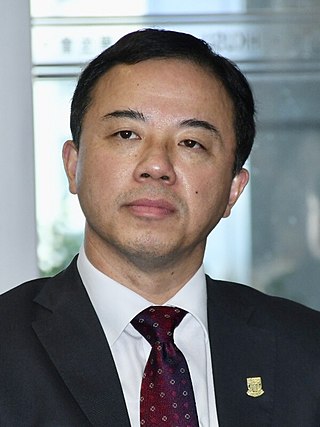
ZhangXiang is a Chinese-American academic administrator, material scientist, optical engineer and physicist. He is the current vice-chancellor and president of the University of Hong Kong, where he also serves as professor.
Paul Tam Kwong-Hang was Provost and Deputy Vice-Chancellor in the University of Hong Kong (HKU), the first university in Hong Kong and in the British-Empire-controlled East Asia region, from 2015 to 2019. Before his provostship, he has already started chairing Paediatric Surgery at HKU since 1996 for decades and has received Li Shu-Pui Professorship in Surgery since 2013.
Robert Peckham is a British writer and historian of science, technology, and medicine. His most recent academic appointment was at the University of Hong Kong as MB Lee Professor in the Humanities and Medicine, Chair of the Department of History, and Director of the Centre for the Humanities and Medicine. He is the founder of Open Cube, "an organisation that promotes the integration of the arts, science, and technology for health."
Chak Sing Lau is a Hong Kong rheumatologist. He is the current Interim Dean of Li Ka Shing Faculty of Medicine, University of Hong Kong (HKU), the Daniel CK Yu Professor in Rheumatology and Clinical Immunology, and Chair Professor of Rheumatology and Clinical Immunology. Previously, he was the Chairperson of the Department of Medicine at HKU, the Chief of Service (Medicine) of Queen Mary Hospital, and the President of the Hong Kong Academy of Medicine.
Sum Ping Lee is an American physician and gastroenterologist who served as the 39th Dean of the Li Ka Shing Faculty of Medicine at the University of Hong Kong, between 2008 and 2013. He is currently a Professor Emeritus at the Division of Gastroenterology, Department of Medicine, University of Washington School of Medicine.
References
- 1 2 3 4 "Established Endowed Professorships". www.daao.hku.hk. Retrieved 2017-08-28.
- 1 2 3 "Prof. Lixing Lao Biography" (PDF).
- ↑ Doheny, Kathleen (2003-06-15). "Acupuncture helps kids handle pain". USA Today. Retrieved 2017-08-28.
- ↑ Freedman, David H. (July–August 2011). "The Triumph of New-Age Medicine". The Atlantic. Retrieved 2017-08-28.
- ↑ "Lixing Lao CV" (PDF).
- ↑ Kim, Byung. "In-Service Training". vuim.edu. Retrieved 2021-04-02.
- ↑ Stolberg, Sheryl Gay (2000-01-31). "Alternative Care Gains a Foothold". The New York Times. Retrieved 2017-08-28.
- ↑ "Chinese herb mix may shorten flu fever". Reuters. 2011-08-15. Retrieved 2017-08-28.
- ↑ Edwards, Audrey (2006-06-20). "Herbs, As Nature Made Them". The Washington Post. ISSN 0190-8286 . Retrieved 2017-08-28.
- ↑ Elsevier. "Lixing Lao". www.elsevier.com. Retrieved 2017-08-28.